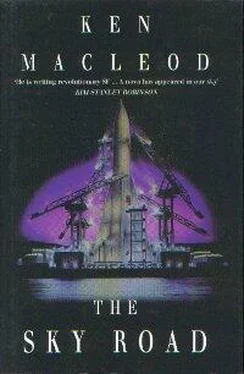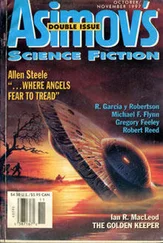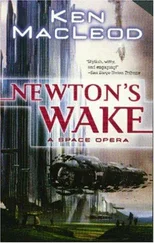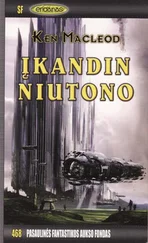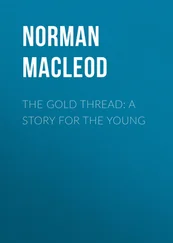Ken Macleod - The Sky Road
Здесь есть возможность читать онлайн «Ken Macleod - The Sky Road» весь текст электронной книги совершенно бесплатно (целиком полную версию без сокращений). В некоторых случаях можно слушать аудио, скачать через торрент в формате fb2 и присутствует краткое содержание. Год выпуска: 1999, ISBN: 1999, Издательство: Orbit, Жанр: Фантастика и фэнтези, на английском языке. Описание произведения, (предисловие) а так же отзывы посетителей доступны на портале библиотеки ЛибКат.
- Название:The Sky Road
- Автор:
- Издательство:Orbit
- Жанр:
- Год:1999
- ISBN:1-85723-755-2
- Рейтинг книги:3 / 5. Голосов: 1
-
Избранное:Добавить в избранное
- Отзывы:
-
Ваша оценка:
- 60
- 1
- 2
- 3
- 4
- 5
The Sky Road: краткое содержание, описание и аннотация
Предлагаем к чтению аннотацию, описание, краткое содержание или предисловие (зависит от того, что написал сам автор книги «The Sky Road»). Если вы не нашли необходимую информацию о книге — напишите в комментариях, мы постараемся отыскать её.
The Sky Road — читать онлайн бесплатно полную книгу (весь текст) целиком
Ниже представлен текст книги, разбитый по страницам. Система сохранения места последней прочитанной страницы, позволяет с удобством читать онлайн бесплатно книгу «The Sky Road», без необходимости каждый раз заново искать на чём Вы остановились. Поставьте закладку, и сможете в любой момент перейти на страницу, на которой закончили чтение.
Интервал:
Закладка:
The sun’s growing heat was burning off the morning mist on the loch and between the hills. I felt as though I might at any moment rise and float away myself. My eyes felt sandy and my brain felt hot, but these discomforts did not diminish the kinder glow of elation somewhere in my chest and gut. In a strange way I could hardly bear to think about Mer-rial—every time I did so brought on such an explosion of joy that I quivered at the knees, and I almost feared to indulge it to excess. I wanted to keep it, hoard it, dole it out to myself when I really needed it, not gulp it all down at once. (Which is of course a mistaken notion—that particular well, like all too many others, is bottomless.
What I thought about instead was another woman—the Deliverer, under whose memorial I had met Merrial, and under whose remote and ancient protection she and her people lived. (Protected from persecution, at any rate, if not from prejudice.)
Over the past four years, History had been one of the arts I. had struggled to master. It hadn’t been easy, even in Glaschu, where the place fair drips with it, as they say. The baffled aversion expressed by Merrial was a common enough reaction. In a time of so many opportunities, and a place buzzing with innovative work in so many fields which could be applied to bring about manifest human betterment, it seemed perverse (sometimes even to me) for a vigorous and intelligent young man to turn aside from such arts as Literature, and Music, and Kinematography, or from the sciences: Astronomy, Medicine, the many branches of Natural Theology; from the improving pursuits of Practical Philosophy and Mechanical and Civil Engineering—to turn aside from all these useful works of the intellect, not even for the understandable and, within reason, commendable attractions of business and pleasure, but to fossick about in mouldering documents and crumbling ruins, and to fill his head with bloody images and mind-numbing figures from the mega-dead past.
It was a distasteful and faintly disreputable fascination, with a whiff of necrophilia, even of necromancy, about it. But, whether we will or no, we’re all historians, each with our own outline of history in our heads. This was a point I’d often had to make to sceptical listeners, from parents and siblings through to patronage committees and on to friends and workmates in drink-fuelled debate. We pick up the outline from parents and teachers and preachers, from songs and statues and stories.
In the beginning, God made the Big Bang, and there was light. After the first four minutes, there was matter. After billions of years, there were stars and planets, and the Earth was formed. The water above the sky separated from the water below the sky, which brought forth all manner of creeping things. Over millions of years they were shaped by God’s invisible hand, Natural Selection, into great monsters of land and sea. The Earth was filled with violence, and God sent an asteroid, Katy Boundary, to destroy it. The sky was dark at noon for forty days, and almost all the living things were destroyed. Among those who survived were little beasts like mice, and they replenished the Earth, and burrowed into it and became coneys, and climbed trees and became monkeys, and climbed down and became Men—
— ape-men and cave-men, Egyptians and Babylonians, Greeks and Romans, Christians and Americans, Chinese and Russians. The Americans fell but their empire lived on as the Possession, until the Deliverer rose in the east and struck it down. Troubled times followed, and then peace.
So why disturb it—answer me that, lad!
Because the truth is more interesting and ultimately more instructive than a farrago of fable? I had acquired the taste not just for truth but for detail; for the peculiar pleasure that comes from seeing the real relationship between events in terms of cause and effect rather than narrative convention. It’s a satisfaction which I’ll defend as genuinely scientific.
But what use is it, eh?
To that I had no ready answer, except to define the result as art, in the same way as the method could be defined as science. The argument that those who do not learn from history are doomed to repeat it failed to impress most people, convinced as they were that there was no risk whatsoever of history’s more ruinous errors being repeated. So I had to reach for the argument that real history told a better story because it was a truer story; that reality had its own beauty, sterner and higher than that of myth.
The particular story I wanted to tell was of the life of the Deliverer. My proposal for a thesis on her early years as a student and academic in Glasgow, long before she became the figure known to history, was only the beginning of my own world-conquering ambition: to reconstruct, as much as one can across that gulf of time, the mind and personality and circumstance that had shaped the future that was now our past.
It might take decades of research, years of writing. Whatever else I did, this biography would define my own: a life for a Life. Perhaps it was an unconscious balking at that price, or some half-baked, self-justifying attempt to pay my dues to what my more practical-minded contemporaries called “real work”, or something more positive, a dimly felt attraction to the world of material striving and measurable success, a turning towards the future and away from the past, that led me that summer to Garron Town and the Kishorn Yard.
“Thank God it’s Thursday,” said a cheerful voice behind me. I turned and grinned at Jondo, who was leaning against the bus-stop sign and eating a black pudding and fried-egg roll. Behind him a score of workers were by now queuing up. Vendors of snacks, hot drinks and newspapers worked along the line.
“It’s Friday,” I pointed out.
“That’s what I meant,” he said around a mouthful, hand-waving with the remainder of his breakfast. “Force of habit.” He swallowed. “Pay-day, at any rate.”
I nodded enthusiastically. Half my pay was telegraphed straight to my account at the Caledonian Mutual Bank; out of the remainder I had to pay for my lodgings, food and drink, and a modicum of carousing at the weekly fair. By Friday mornings I had just enough cash to get through the day. Pay was high, but so was the cost of living—the project had pulled up prices for miles around it.
Jondo was a man about my own age, his beer-gut already as impressive as his muscles. His long red hair, now as usual worn in a pony-tail, and his pale eyes and eyebrows gave him the look of a paradoxically innocent pirate; inherited perhaps from his ancestors who’d gone a-viking, and come to this land to pillage and settled down to farm, and to whom the Christian gospel had come as good news indeed, a welcome relief from heathendom’s implacable codes of honour and vengeance. He spoke with the soft accent of Inverness, where—rumour had it—there were Christians still.
I tried to imagine Jondo drinking blood at some dark ceremony. The momentary absurd image must have brought a smirk to my face.
“What’s so funny, Clovis?” he growled. Then he smiled, balling up the waxed paper and chucking it, wiping the grease from his hands on the oily thighs of his overalls. “Ach, I know. A good night with your tinker lass, was it?”
“You could say that.”
“Aye, well, each to their own, I suppose,” he said, in the tone of one making a profound and original observation. “Here’s the bus.”
The bus, already half-full, drew to a halt beside us in a cloud of wood-alcohol exhaust, its brakes squealing and its flywheel shrieking. I hopped on, paid my groat to the driver and settled down in a window seat. Jondo heaved his bulk in beside me, gave me another lewd grin and a wink, released an evidently satisfying fart and went instantly to sleep.
Читать дальшеИнтервал:
Закладка:
Похожие книги на «The Sky Road»
Представляем Вашему вниманию похожие книги на «The Sky Road» списком для выбора. Мы отобрали схожую по названию и смыслу литературу в надежде предоставить читателям больше вариантов отыскать новые, интересные, ещё непрочитанные произведения.
Обсуждение, отзывы о книге «The Sky Road» и просто собственные мнения читателей. Оставьте ваши комментарии, напишите, что Вы думаете о произведении, его смысле или главных героях. Укажите что конкретно понравилось, а что нет, и почему Вы так считаете.
